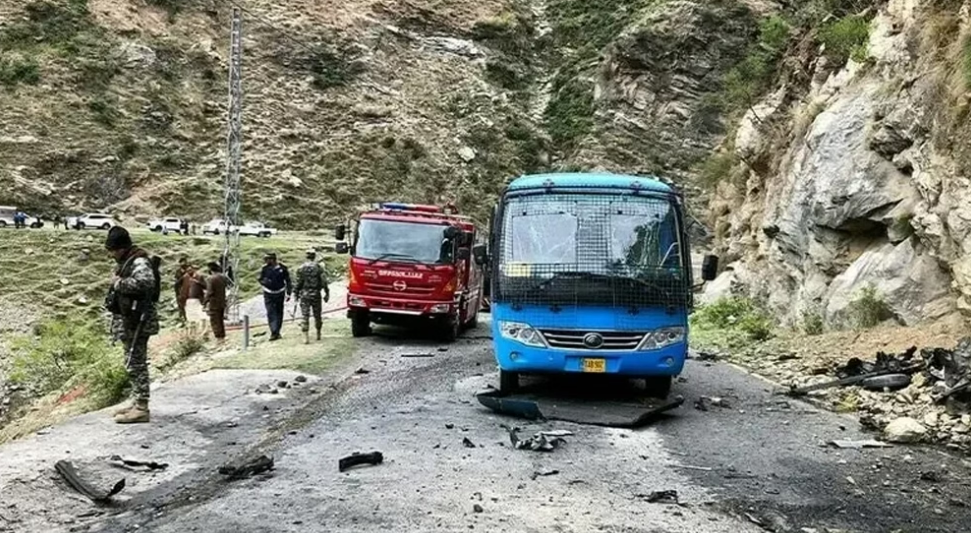The tragic Besham attack in March resulted in the deaths of nine people, including five Chinese nationals. This event has led to significant political and diplomatic repercussions, underscoring the delicate balance of international relations, especially between Pakistan and China. This article delves into the incident, the Pakistani government’s response, and the broader implications for regional security and the China-Pakistan Economic Corridor (CPEC).

The Incident
On a fateful day in March, a bus transporting Chinese engineers working on the Dasu hydropower project was targeted in a terrorist attack near Besham, Swat. The attack resulted in the deaths of five Chinese nationals, along with four others. This brutal act of violence was immediately condemned by both the Pakistani and Chinese governments.
Government Response
Compensation for Victims
In response to the tragedy, the Pakistani federal government has decided to compensate the families of the deceased Chinese nationals with approximately $2.5 million. Prime Minister Shehbaz Sharif has instructed relevant authorities to expedite the compensation process, highlighting the urgency and seriousness with which the Pakistani government is treating the matter.
Diplomatic Measures
Prime Minister Sharif is scheduled to visit Beijing next month, aiming to advance cooperation across various domains and initiate the second phase of the CPEC. This visit is crucial for reaffirming the strong ties between Pakistan and China, especially in the wake of the Besham attack.
Security and Investigations
The Chinese government demanded a thorough investigation into the attack and insisted on enhanced security for its citizens working in Pakistan. In response, the Pakistani government has vowed to take all necessary steps to bring the perpetrators to justice. Islamabad has claimed that the terrorists involved in the attack originated from Afghanistan, leading to several arrests.
Broader Implications
Impact on Pakistan-China Relations
The Besham attack has strained Pakistan-China relations, particularly concerning the security of Chinese nationals in Pakistan. The Chinese government’s call for a comprehensive investigation and heightened security measures is a testament to the gravity of the situation.
Regional Security Dynamics
The Inter-Services Public Relations (ISPR) of Pakistan described the Besham incident as a “conscious effort” to create discord between Pakistan and its strategic partners, primarily China. The ISPR spokesperson, Major General Ahmed Sharif, revealed that the suicide bombing was orchestrated in Afghanistan, with the bomber being an Afghan national. However, these claims were refuted by the Taliban’s Defence Ministry, which denied any Afghan involvement.
Also Read :Massive Protests in PoK over Taxes Against Pakistan Army
Accountability and Reforms
In the aftermath of the attack, the Pakistani government has taken steps to address security lapses. Several security and police officials have been dismissed for failing to provide adequate protection to the bus carrying Chinese nationals. This move is part of broader efforts to ensure such incidents do not recur and to reassure international partners of Pakistan’s commitment to their safety.
Conclusion
The Besham attack has had profound implications for Pakistan’s domestic security policies and its international relations, particularly with China. The swift governmental response, including compensation for victims’ families and the planned diplomatic engagements, underscores the importance of maintaining strong bilateral ties. As Pakistan continues to navigate the complexities of regional security and international cooperation, the lessons learned from the Besham tragedy will undoubtedly shape future policies and actions.

